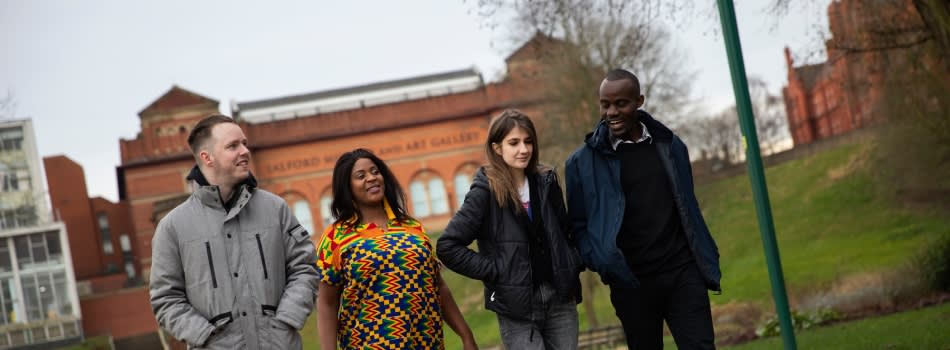About the Project
An exciting and fully funded PhD studentship opportunity has arisen out of discussions between the University of Salford and TfGM.
For decades, UK Government and Industry reports have continually criticised the construction industry for its poor performance, low productivity, inefficient practices, adversarial behaviours, silo mindsets and for focussing too much on the short-term, rather than the long term and lowest price, rather than best value. These reports have not only provided a critique, but also a number of recommendations for improvements to the industry, in particular, to deliver better whole life value from built environment assets/estates from CAPEX through to operational management.
In May 2011, the UK Government launched its Construction Strategy, which included a formal commitment to drive change through the digital transformation of the UK construction industry. The primary driver of this was to address the issues of ensuring the UK derives full value from its centrally procured public sector built environment assets/estates. In terms of deriving improved whole life value from built environment assets/estates, this not only includes the capital delivery, but also deriving improved value post-construction by developing the capability to determine and capture the required operational digital data during the capital delivery phase that can then seamlessly flow through to enabling the efficient operation of built environment assets/estates.
TfGM are continuing to develop their Digital Construction capability to gain operational efficiencies through quality Asset Information Models (AIM), particularly during the capital delivery phase. However, it is perceived there is insufficient research in the industry to enable developing their capital delivery through to operation capability. Therefore, the aim of this project is to use current TfGM projects as case studies to establish their Information Requirements for the handover As-Built Information model and explore how this model can be extracted, during capital delivery, to seamlessly flow through the lifecycle to become an Asset Information Model (AIM) and utilised of their built environments assets. It is proposed to achieve this aim through the following set of objectives:
1. Determine state-of-the-art and best practice of the process for the seamless flow of information through capital delivery through to operation.
2. Establish the current (as-is) capital delivery process of existing TfGM case study projects in relation to ascertaining the enablers and barriers to the production and delivery of the As-built (handover) information, together with establishing the level of alignment with best practice.
3. Determine the Asset Information Requirements for operation and mapping this against the delivered As-built Information Models in order to:
1. ascertain whether it is capable of fulfilling the requirements, and
2. identify any gaps in the information and the process of its delivery, i.e. gap analysis.
4. To propose and develop a seamless process to facilitate the transition of the As-built (handover) Information Model to a fit-for-purpose Asset Information Model, that can be utilised to facilitate the efficient operation of their built environments assets, and which can be scaled up through both retrofitting on existing assets and future redevelopment projects.
5. To develop a process for maintaining and updating the Asset Information Model for future use, including operations (Asset Management) and retrofitting/redevelopment.
6. To explore emerging future benefits of the use of the Asset Information Model for TFGM and feedback through an iterative loop to review and refine the requirements (process and information).
The following outputs are proposed from the study:
A holistic critical review of the current capital delivery and operational management practice to enable
TfGM to determine a baseline from which to learn and build on.
A practical process solution for the definition, capture and delivery of useable, quality asset information throughout the entire asset lifecycle to realise pre-determined benefits to TfGM.
Established future benefits of utilising the Asset Information Model for TFGM.
Enhancing the awareness and engagement of TfGM in the process to facilitate organisational-wide buy-in and driving their digital transformation.
Coalition between academia, industry, professional institutions and industry bodies to deliver industrywide benefits and best practice.
Candidates:
The preferred candidate must possess a good understanding of digital construction, information management, and whole life value in the built environment with specific focus on BIM, Lean Construction principles, process management and collaboration. An understanding of facilities and operational asset management is also highly desirable, but not essential.
Candidates will hold a minimum of an upper 2nd class degree in a relevant subject area. Completion of a Master’s degree in a relevant subject area is desirable, but not essential.
Candidates are asked to provide a personal statement describing their background, skills, academic interests and their motivation for doing a PhD in no more than 2 sides of A4. This should include evidence of satisfying the above requirements along with being able to work independently to a high standard, collaborate with others, and excellent scientific writing skills.
For full details of student requirements and specification please visit: http://www.salford.ac.uk/ktp/industrial-case-studentships/vacancies
Funding Eligibility:
This studentship is only available to students with settled status in the UK, as classified by EPSRC eligibility. Please visit: https://www.epsrc.ac.uk/skills/students/help/eligibility/
Enquiries: Informal enquiries may be made to Professor Jason Underwood by email: [Email Address Removed]
Curriculum vitae and supporting statement explaining their interest should be sent to [Email Address Removed]
Final date for applications: 3rd May 2019
The candidate must be in a position to register by September 2019

 Continue with Facebook
Continue with Facebook


